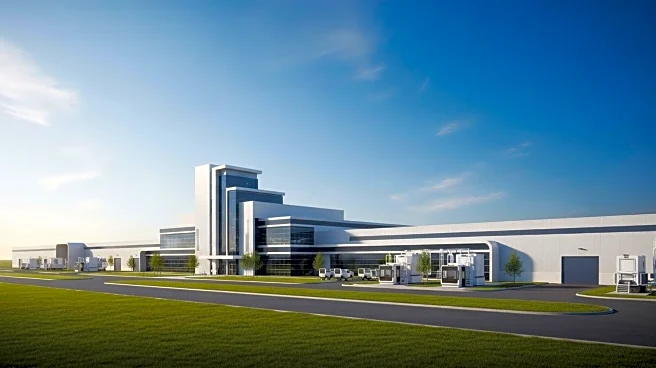What's Happening?
Eli Lilly has announced plans to construct a new $6.5 billion production plant in Houston, Texas, as part of its ongoing manufacturing expansion. The facility is expected to be operational within the next five years and will focus on small-molecule manufacturing across various therapeutic areas, including oncology, immunology, and neuroscience. The project is set to create 615 high-wage roles in the Houston area, along with approximately 4,000 construction jobs. Additionally, the plant will produce Lilly's next-generation weight-loss pill, orforglipron, with regulatory preparations for the drug underway and a filing anticipated by the end of the year.
Why It's Important?
This significant investment by Eli Lilly underscores the company's commitment to expanding its manufacturing capabilities within the United States. The creation of high-wage jobs and thousands of construction roles will have a positive impact on the local economy in Houston. Furthermore, the production of orforglipron at the new facility aligns with Lilly's strategy to boost domestic manufacturing amid potential pharmaceutical tariffs. The expansion is part of a broader $27 billion package announced earlier this year, aimed at enhancing domestic production and reducing reliance on international manufacturing.
What's Next?
Eli Lilly plans to unveil two more manufacturing projects this year, further expanding its footprint in the U.S. The company has already announced a $5 billion facility in Richmond, Virginia, which is expected to create 2,450 jobs. These developments are part of Lilly's long-term strategy to invest in U.S. manufacturing, with approximately $50 billion invested since 2020. The company continues to focus on increasing its domestic production capabilities, which may influence other pharmaceutical companies to follow suit.
Beyond the Headlines
Lilly's investment in U.S. manufacturing reflects broader industry trends towards domestic production, potentially reducing dependency on international supply chains. This shift may have long-term implications for the pharmaceutical industry, including increased job creation and economic growth in regions hosting new facilities. Additionally, the focus on producing innovative therapies like orforglipron highlights the importance of advancing medical treatments within the U.S., potentially improving healthcare outcomes for American patients.










